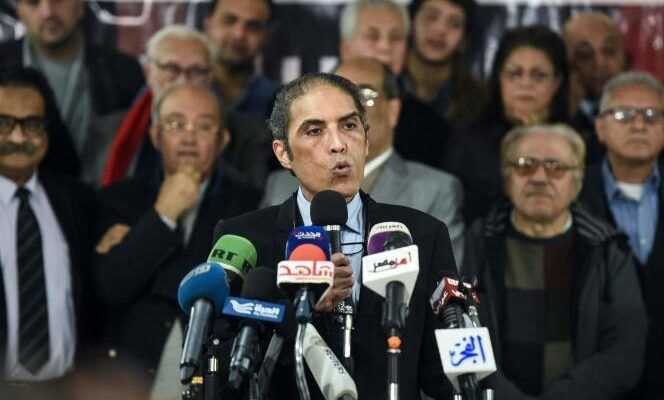The release, Tuesday, April 13, of Khaled Daoud, a figure of Egyptian dissent, who had been in prison since September 2019, then that, the next day, of Hossam El-Sayed and Solafa Magdy, a young couple of journalists, after ten- seven months of pre-trial detention, created surprise among their relatives, as well as among those who mobilize daily on the fate of political prisoners and prisoners of conscience in Egypt. Is this a signal sent to the United States, whose Biden administration has promised more firmness on the issue of human rights? Or a gesture in the hope of obtaining greater commitment from Washington alongside Cairo, in the dispute between Ethiopia over the management of the Nile water? Or, more prosaically, a few isolated releases?
It is not, in any case, a change of course, say various observers. “Individual cases are not a trend. We can talk about a turn when there will be many structural releases; unblocking of websites; a loosening of the grip on the media or NGOs, estimates Mohamed Lotfy, director of the Egyptian Commission for Rights and Freedoms (ECRF). Today, any form of social organization, any dissenting voice, is seen as a threat. ” According to NGOs, several thousand political prisoners are still behind bars.
“The obstacle of human rights”
In the campaign for the American presidential election, Democrat Joe Biden had said that there would be no “Blank check” for Egyptian President Abdel Fattah Al-Sisi. But since entering the White House, a pledge of around $ 200 million in military aid to Egypt was approved in February. This suggests a status quo: if the relationship is not warm, its “fundamentals”, which are based on military partnership and support for Egypt as the first Arab country to have made peace with Israel, remain unchanged.
On the side of opponents and power, it is, for the moment, an exploratory moment, where American actions are scrutinized elsewhere in the region. Thus, the report of the American intelligence services on the assassination of Saudi journalist Jamal Khashoggi was admittedly declassified, at the instigation of Joe Biden, but its publication in February was not followed by any sanction against Crown Prince Mohammed. Ben Salman, however accused of having “Validated” murder. On the International Criminal Court, the US State Department opposed “Firmly” to his decision to open an investigation into the Palestinian territories, which would implicate his Israeli ally. Nothing in these acts suggests a major break.
You have 51.46% of this article to read. The rest is for subscribers only.
